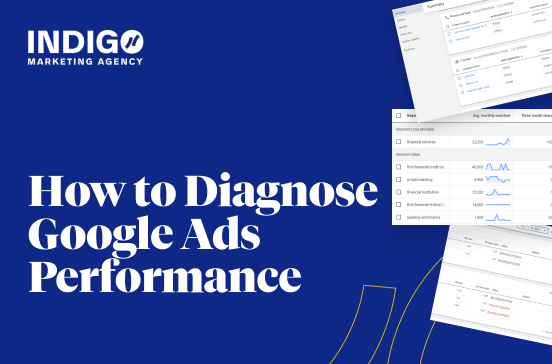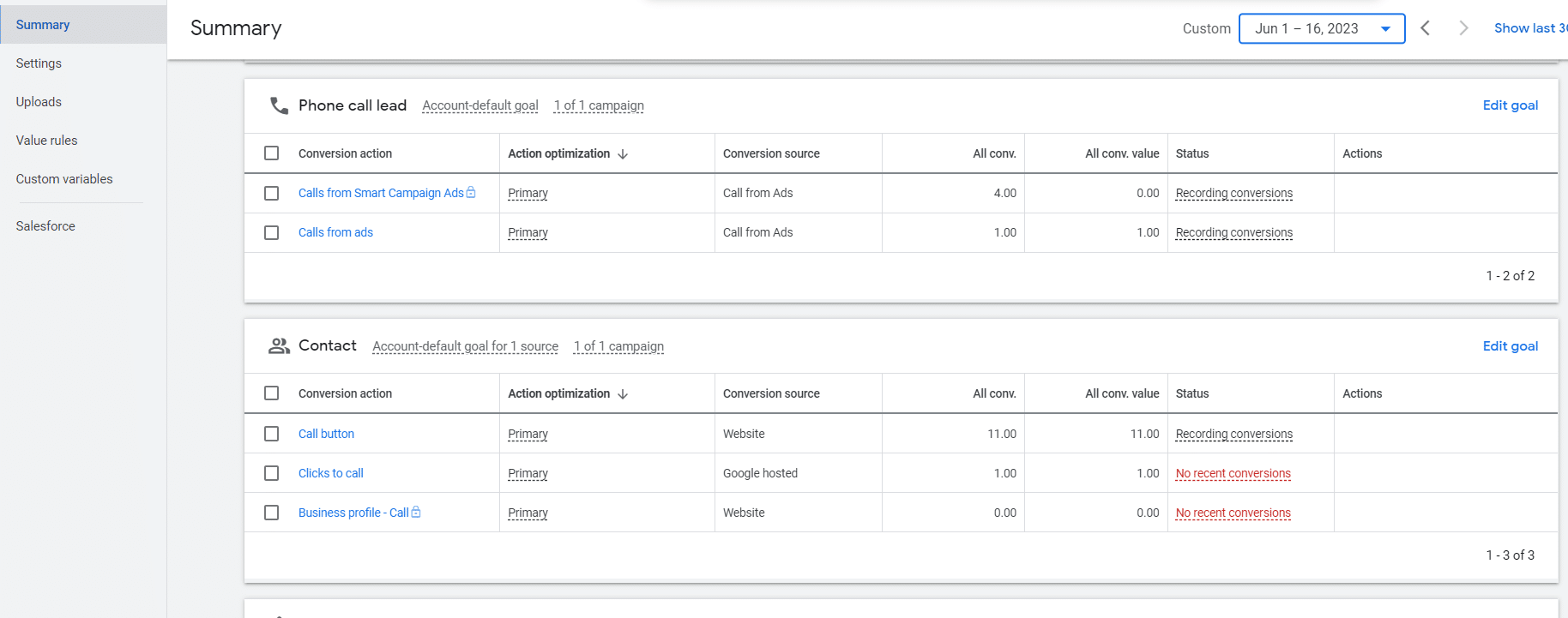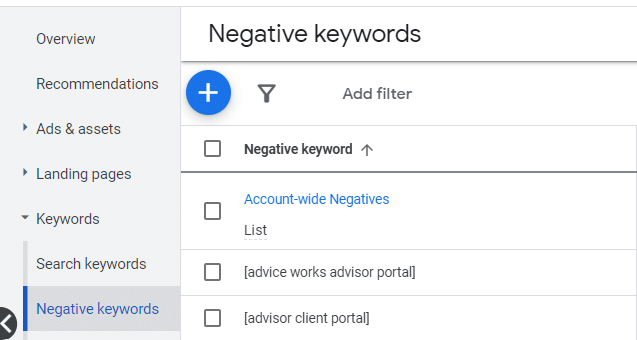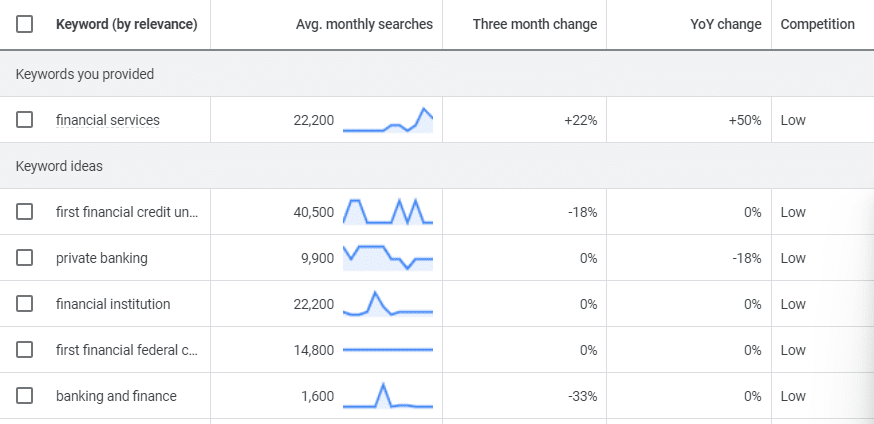
So you’ve taken the plunge with Google Ads—now what? For financial advisors, leveraging platforms like Google can significantly enhance your visibility and help you attract new prospects. But optimizing the performance of your ads requires continuous monitoring and strategic analysis, and it’s not uncommon to experience a few bumps in the road.
Sometimes your performance can be stellar for several months in a row until it seems to suddenly drop. If you’ve experienced an abrupt change in your Google Ads performance, don’t panic! Read on to learn about the 5 most common mistakes advisors make and what you can do to improve campaign effectiveness.
1. Conversion Tracking
While conversion tracking is a powerful tool to understand what a prospect does after interacting with your ad, it is also one of the most common causes of sudden drops in performance on Google Ads. Some potential issues that can impact the accuracy of your tracking include:
- Improper Tracking Tag Implementation: Verify that the code used to track conversions is installed on your website and communicating with Google properly. Tracking codes should be correctly placed on relevant pages (Get Started Now, Book an Appointment, etc.) and tested regularly to ensure functionality.
- Delayed Conversions: Some conversions may occur after a delay from the initial ad click. For example, a potential client may research multiple financial advisors before making a decision. Extend your conversion tracking window to account for these delayed conversions and attribute them to the correct campaigns.
- Third-Party Tracking Issues: If you’re using third-party tools for conversion tracking, ensure they are properly integrated with your Google Ads account. Verify that the data captured by these tools aligns with the conversions reported in Google Ads.

2. Quality Score
Quality Score is an important metric within Google Ads that directly affects the performance and cost-efficiency of your campaigns. It is a rating given by Google to determine the relevance and quality of your ads, keywords, and landing pages. Google Ads operate on an auction system whereby advertisers compete for the top ad position based on how much they bid and their Quality Scores. If your Quality Score decreases, the position of your ad can be directly affected, appearing lower on the search results page and reducing your visibility. Understanding and improving your Quality Score can significantly impact the effectiveness of your Google Ads campaigns.

3. Negative Keywords
If your business name includes common words that have nothing to do with your services, your Google Ads performance could be affected. For instance, if a firm’s name is Grand Canyon Financial Planning, it’s unlikely their Google Ad would appear in the top spot for consumers searching “Grand Canyon.” Or the ad might appear but produce no conversions because consumers are looking for tours of the Grand Canyon and not a financial planner.
Make sure you include negative keywords in the setup of your ad to prevent it from appearing in irrelevant search queries. If you did not include negative keywords, the overall relevance, efficiency, and performance of your campaign can be greatly affected.

4. Keyword Search Volume
Keyword search volume refers to the number of times a particular keyword or phrase is searched on Google. If all the above factors have remained constant and your ad performance has still decreased, it could be a result of a change in keyword search volume.
Like everything else on the internet, keyword search volume can be affected by trends and seasonality. For instance, an uptick in searches related to tax planning in the beginning of the year could see your ads performing very well, until the April 15th tax deadline, when the frenzy for tax advice decreases substantially. Or if your ads address topics like market volatility and recession fears, they could be timely one day and outdated the next. Keep an eye on your keyword search volume and adjust your ads as needed to remain competitive all year long.

5. Landing Page Experience
Landing page experience goes hand in hand with Quality Score. An ad can do its job perfectly—resonate with a prospective client and attract them to your website. But if the landing page is not optimized to continue that positive experience, your overall ad performance can decline significantly. Consider the following questions to better understand your landing page experience and whether it could be the culprit behind your drop in Google Ads performance:
- Does it load quickly?
- Is it easy to navigate?
- Is it mobile-responsive?
- Are the next steps clear, and do they make sense for your target audience?
- Does the call to action in your ad match the call to action on the landing page?
Tips for Improving Google Ads Performance
You may be experiencing less than stellar performance right now, but the good news is that with the right strategy, you can turn that trend around. Here are some tips to get started.
Revisit Your Goals & Adjust Your Bids
What do you want to accomplish with your Google Ads? Are you looking to increase the number of qualified leads actually booking appointments? Or are you focusing on brand awareness? Depending on the answers to these questions, you may find that you’re willing to spend more or less on your ad campaigns. You may also find that some campaigns can be put on pause, or that others may need to be reworked entirely with your goals in mind.
If you’ve identified seasonal trends in your business and ad performance, adjust your bid strategy accordingly. It doesn’t necessarily make sense to target tax planning and preparation year-round if people are only searching for it from December to April. Revisiting your goals and adjusting your bids are often the first steps in optimizing your overall ad performance.
Improve Your Ad Quality Score
As mentioned, Google Ads operate on an auction system that looks at both how much you’re willing to bid as well as the Quality Score of your ad to determine if your ad will be shown, how often it will be shown, and in what position it will rank on the search results page. Because of this, improving your Quality Score is one of the best ways to improve campaign performance.
Start by looking at your Search Lost Impression Share to identify how often your ads weren’t shown on the results page due to your rank in the auction. The higher this number, the worse your ads are performing and the more likely you need to revisit your ad quality.
Review your ad copy and be honest: Is it clear, compelling, and relevant? And more importantly, does it match the copy on your landing page? If your ad and landing page are out of sync, your Quality Score will decrease. Similarly, if your ad isn’t relevant to what users are actually searching for, your Quality Score will take a hit.

Improve Landing Pages
If your Quality Score is lacking, try improving your landing page as a first step. A well-optimized landing page should align seamlessly with the ad that drove the user to it. Ensure that the landing page content, design, and messaging are consistent with the ad copy. This increases relevance and encourages the prospective client to explore your website further.
It’s also important to make sure your call to action is clear, prominent, and aligned with the campaign’s objective, whether it’s scheduling a consultation, downloading a resource, or filling out a contact form.
Landing page best practices include:
- Create a clear and compelling headline: Your headline should be attention-grabbing and directly address the prospective client’s pain points or needs.
- Streamlined design and navigation: Use intuitive navigation to help prospects easily find the information they’re seeking. Avoid distracting elements that may lead visitors away from the intended conversion path.
- Mobile-responsiveness: A mobile-friendly design ensures that users have a seamless and positive experience, regardless of the device they’re using.
- Concise and persuasive content: Use bullet points, subheadings, and visuals to enhance readability and highlight key information.
- Include social proof: Incorporate trust signals, such as client testimonials, reviews, and awards to build credibility and trust.
- Mobile Responsiveness: With the increasing use of mobile devices, it’s crucial to optimize your landing page for mobile responsiveness.
Review Your Targeting
If you’ve been following us for a while, you know that we almost always recommend financial advisors find a niche and stick to it! But when it comes to Google Ads, ultra-specific keywords may do more harm than good. Try broadening your target audience to improve visibility. Keep in mind that there is no one-size-fits-all answer to the “general vs. specific keyword” question, so this tip will require some trial and error to find what works best for your business.
In general, however, it’s best practice not to include the same keywords in multiple campaigns as it can negatively impact campaign performance. In this situation, you may inadvertently find yourself competing against your own campaigns for an ad ranking. Prevent this by choosing your keywords carefully and avoiding overlap between campaigns.
Make the Most of Your Google Ads
Optimizing your Google Ads can feel like a full-time job, but with the right support it doesn’t have to be. At Indigo Marketing Agency, we offer full-service digital marketing, including Google Ads. Tired of wasting your marketing budget on ads that go nowhere? Ready to get your time back and focus on the A+ clients you love working with? Schedule a free strategy call to learn more about our data-driven approach and how we can help you maximize your online presence.
































